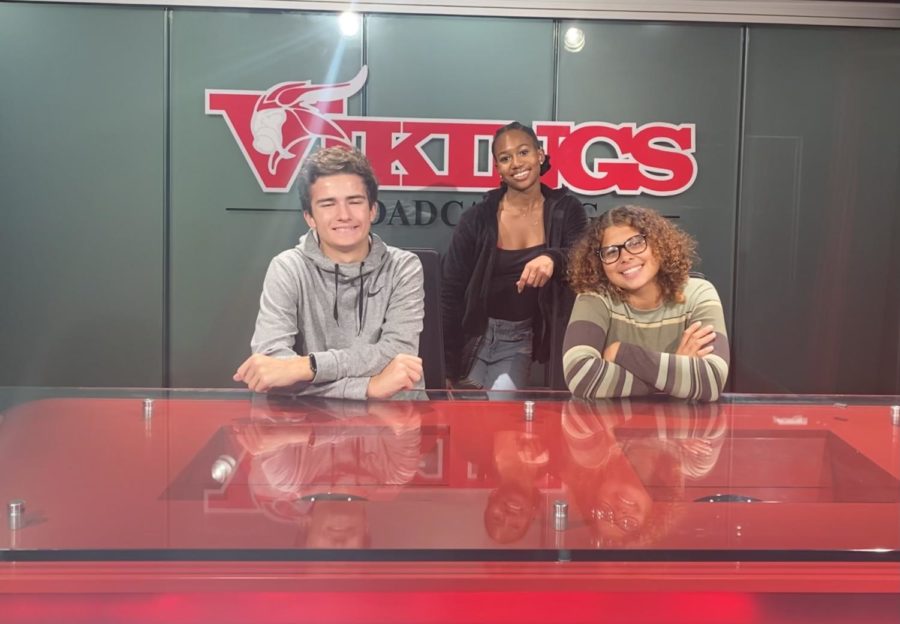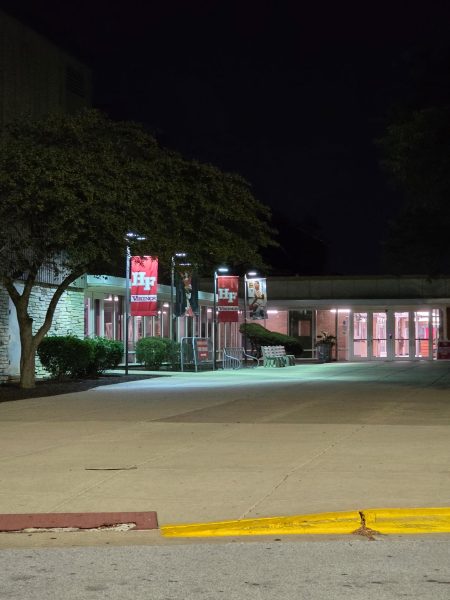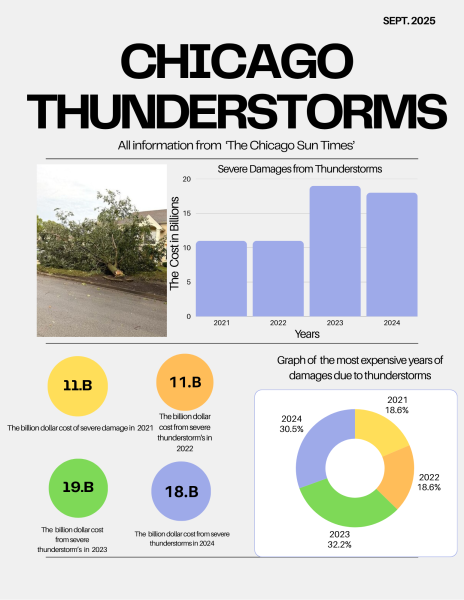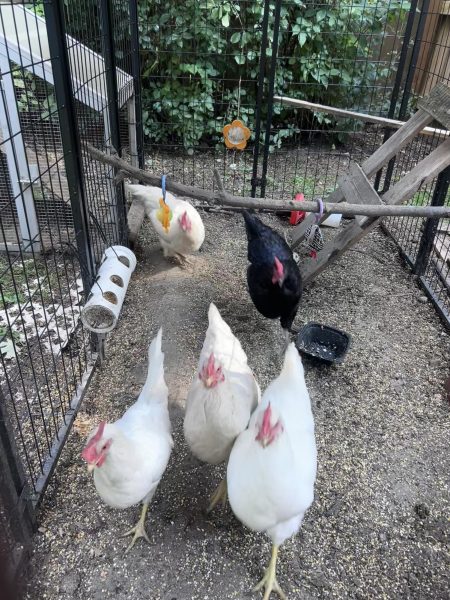Day in the Life of a VTV Member
The Insights on VTV Members
VTV Members posed Aden Kozel, Makayla Taylor, and Lea Ryndak.
We’ve all seen a segment from VTV, but have you ever wondered how the students prepare for broadcasting and their feelings about what they do? Well, I followed around a few VTV members to get some insight into how they do their jobs.
Students are usually upperclassmen that participate in VTV segments.
If you are a lower-classman, you would have to take Intro to Broadcasting before being able to help put together a segment. Students work really hard on their segments. The Broadcasting studio is open until 7 pm, so students stay and work on finishing recording/editing segments.
Public Relations Manager Lea Ryndak, says “We have about one week to finish a segment. That comes with writing a script, finding a perfect time for you and other students to record, and also editing. It could take you an hour, or it could take you ten depending on the segment you have, so you really need good time management skills”.
With that, students say doing VTV can be pretty time-consuming and stressful.
Television manager Aden Kozel says that time is one of his biggest struggles with his job. “There is only so much time in a school week to make sure things get done. In addition, the job can sometimes be very stressful due to the very heavy work overload”.
VTV members are very hard-working, and also take much pride in their work.
Ryndak, Kozel, and Makayla Taylor went to the North Building to record and get footage of the Special Olympics assembly on 10/24. The three had to set up cameras in different places to capture the event. They walked around the gym to make sure they had the perfect angles. I was told there is a lot of “stress and running around”.
H-F Broadcasting teacher of 13 years Mark Ciesielski, recommends students to join a Broadcasting class because “It’s a really fun class, and you’re learning skills that you would use in life, even if you are not going to be in radio, or television. You learn the importance of deadlines, time management, public speaking, and working with the community. Things that a lot of other kids in the school don’t get a lot of practice at, but the stuff they’ll be using for the rest of their lives.”
If you are a student and want to be a part of VTV all of the time you should join. It can also be a self-confidence booster for students that may be camera shy/nervous and are learning to express themselves. You are also learning the technical side of VTV, and can see how things really work!
Ciesielski says “Your first two years you are learning how to work on and behind the camera. In those first two years, you can decide if you feel more comfortable on camera, or behind. When you become a part of the staff, and you don’t want to be on TV you don’t have to be, you can be an editor, producer, or you could be behind the scenes.”
Kozel’s advice to students that might be interested in joining but are too nervous is “Even if you are too nervous, it’s always worth trying something new! Take the chance, or lose the opportunity.”






